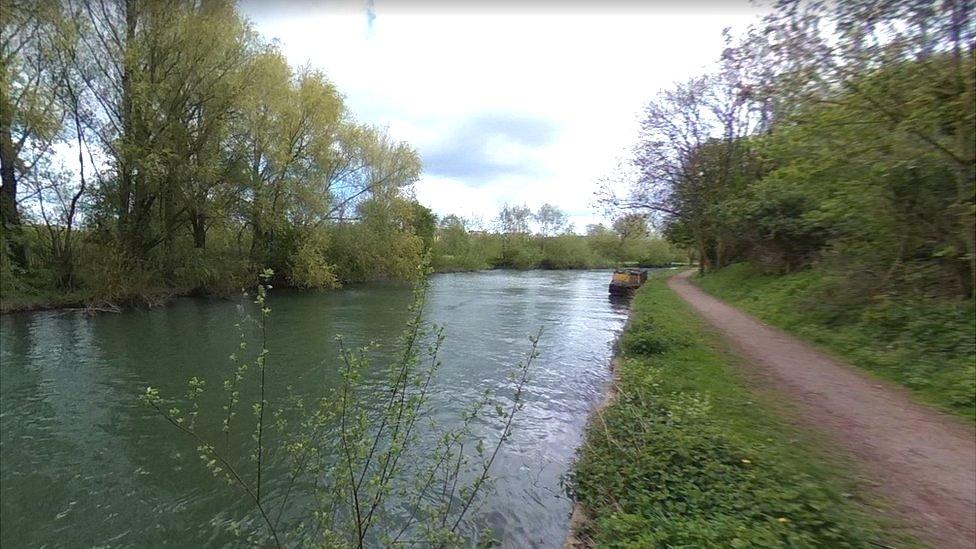Thames Water sewage spills quadruple, data shows
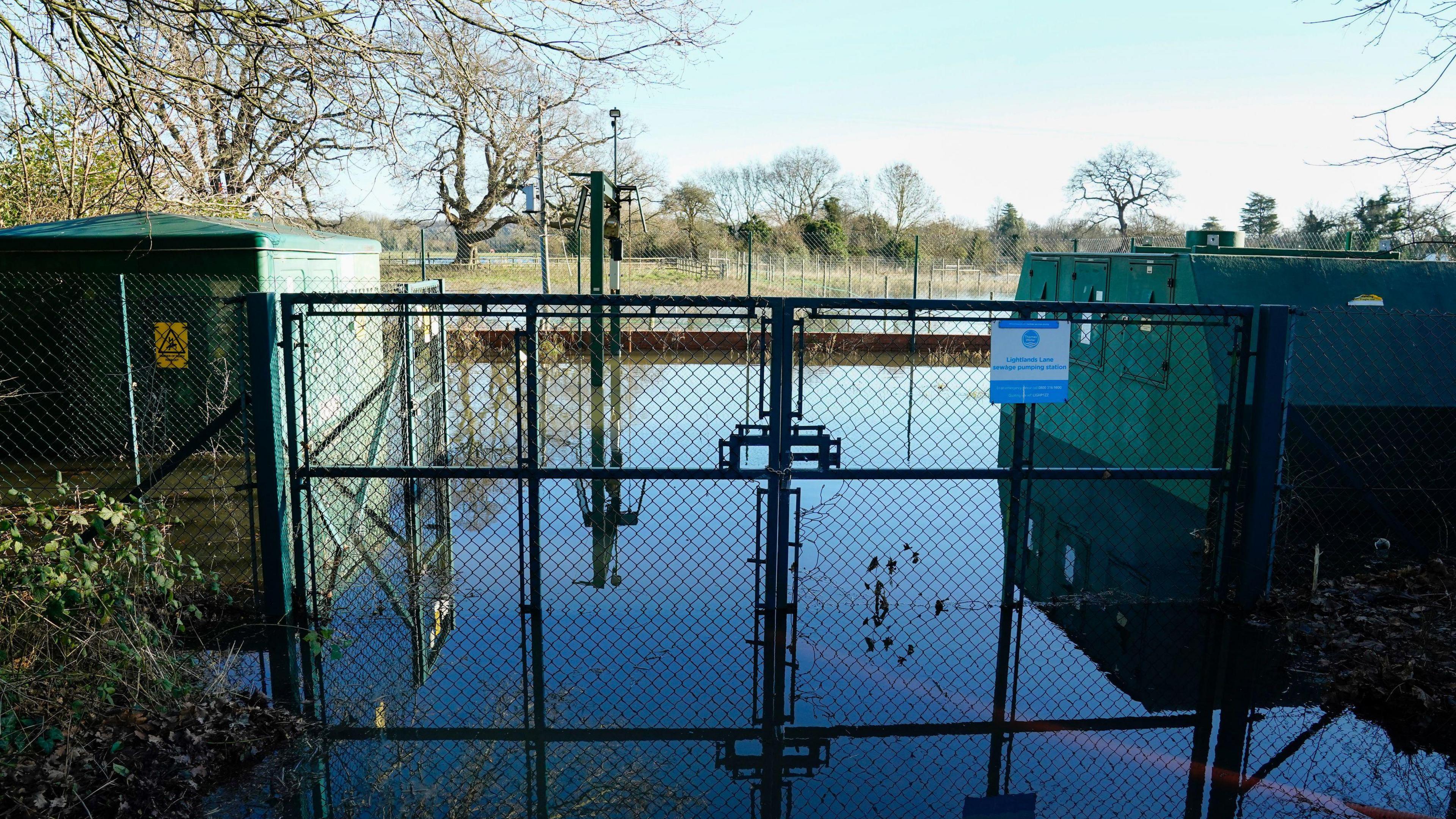
Lightlands Lane sewage pumping station in Cookham, Berskhire, is among those that flooded after heavy rainfall
- Published
The number of hours in which sewage was dumped into the River Thames has more than quadrupled in the last year, figures show.
There were 6,590 hours of sewage spills in the last nine months of 2023, according to the data from Thames Water, analysed by London's City Hall.
It is up from 1,420 hours for the same period in 2022.
Thames Water has been urged to take action, while the water company said it was "working hard" to tackle the issue.
The figures on Thames Water's storm discharge dashboard only started being published in April 2022.
According to the latest data, between 25 and 31 December last year, sewage was dumped 18 hours a day on average, amid heavy rainfall.
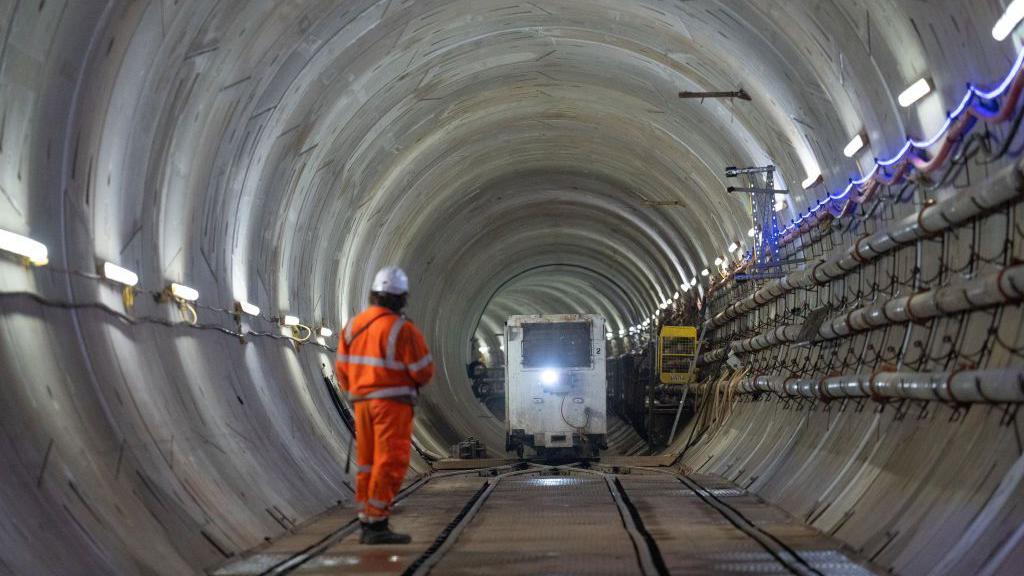
Thames Water said its £4.5bn Thames Tideway Tunnel, aimed at capturing untreated sewage that is entering the river, is nearing completion
Storm overflows, which act as emergency valves on the sewer network, are designed to spill diluted sewage into waterways during times of heavy rainfall, in order to save it from flooding towns.
While 2022 was dry, with London declared to be in drought that summer, 2023 was much wetter.
James Wallace, chief executive of campaign group River Action, said as cyclical floods and droughts worsen, the "impact of aging infrastructure and population growth" would be felt.
In a letter to the new Thames Water chief executive, London's major Sadiq Khan urged the company to clean up rivers and tackle pollution discharges.
You might also be interested in:
Sewage discharges in Thames 'over 72bn litres'
- Published10 November 2023
Maps shows worst areas for road run-off pollution
- Published18 October 2023
Watch: Bike ride through UK's new super sewer. Video, 00:01:40
- Published28 March 2023
A Thames Water spokesperson said the Thames Tideway Tunnel, a £4.5bn project that aims to avert the routine overflow of London's current system, was nearing completion.
"This project, combined with previous upgrades we’ve made to our London sewage works and the building of the Lee Tunnel, will capture 95% of the volume of untreated sewage currently entering the tidal Thames in a typical year," the spokesperson said.
The company said it was "working hard" to make discharges, due to heavy rainfall, unnecessary and it planned to upgrade more than 250 of its sewage treatment works and sewers.
Listen to the best of BBC Radio London on Sounds and follow BBC London on Facebook, external, X, external and Instagram, external. Send your story ideas to hello.bbclondon@bbc.co.uk, external
Related topics
- Published3 September 2023
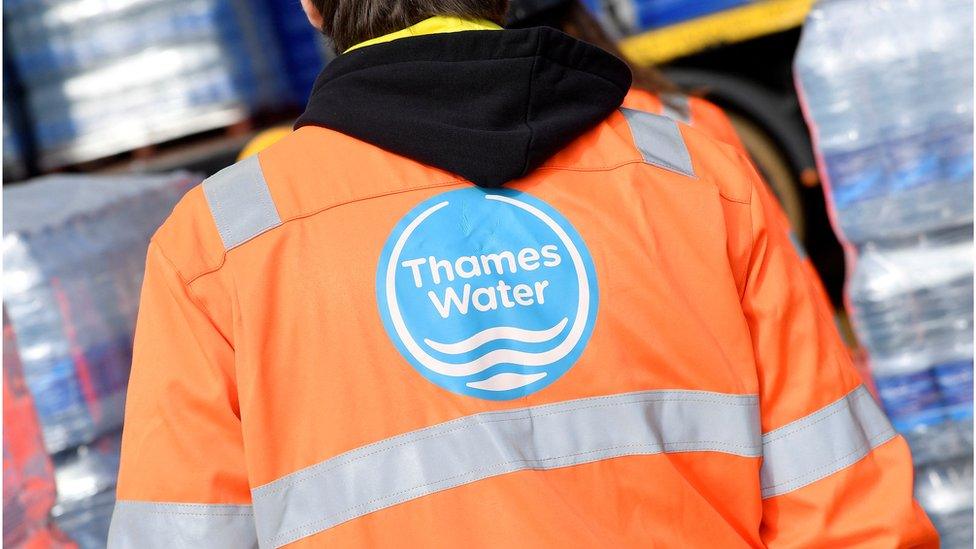
- Published22 January 2024
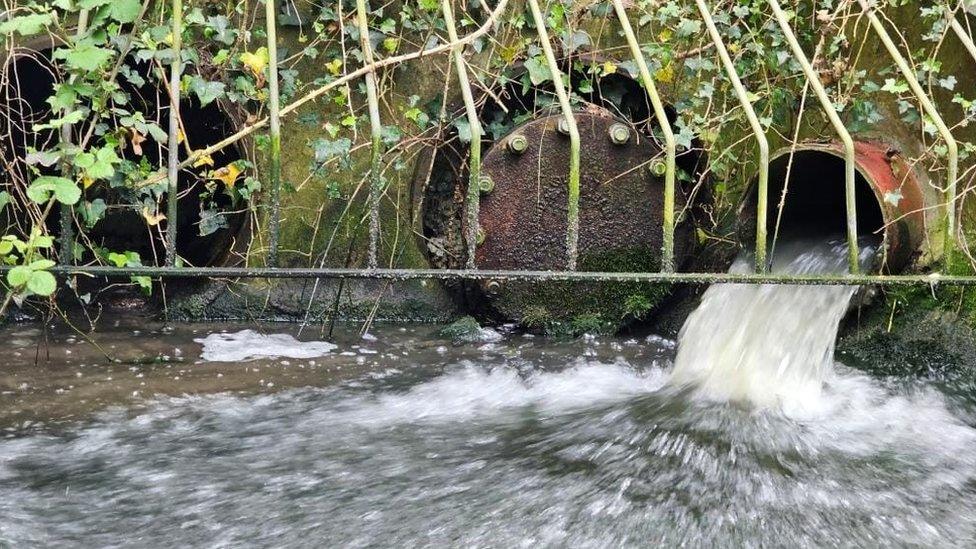
- Published16 January 2024
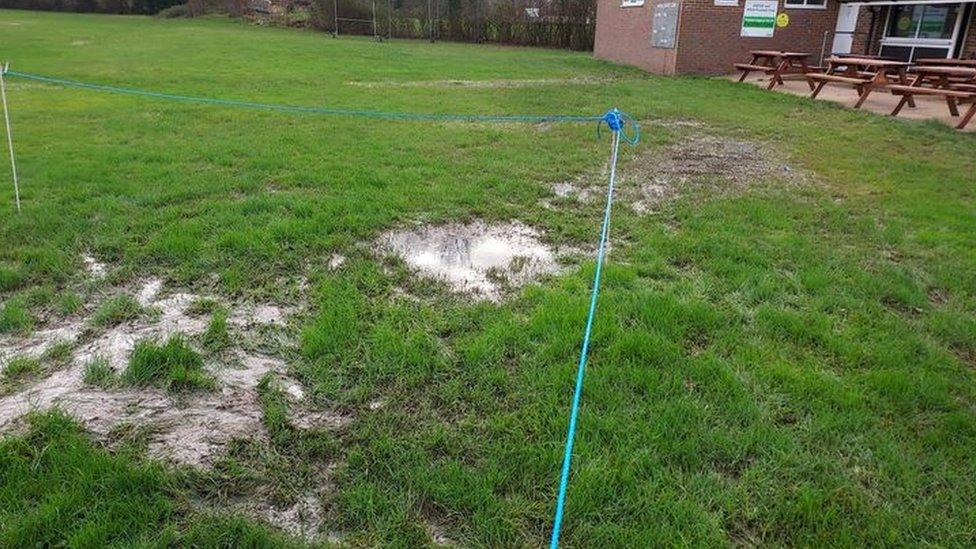
- Published4 January 2024
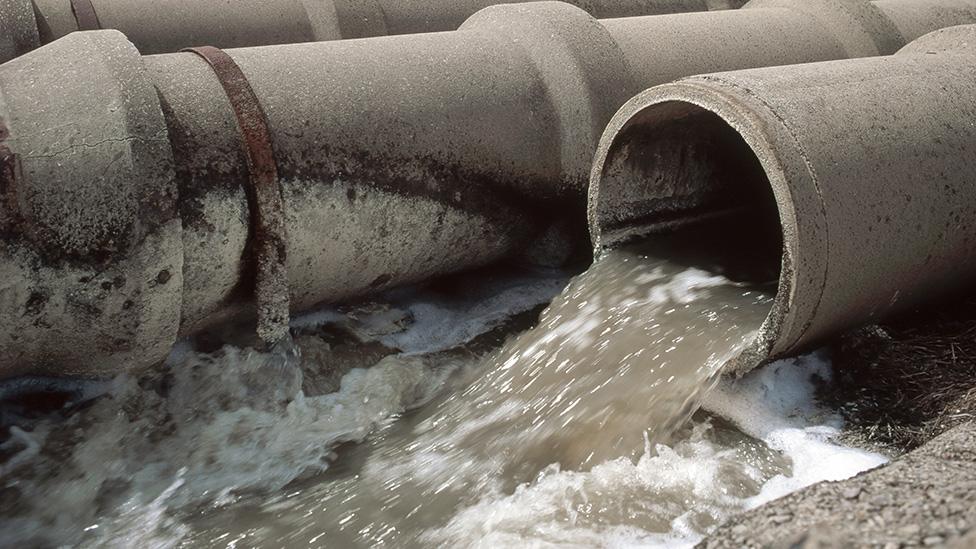
- Published4 March 2021
